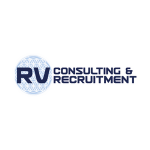Why am I being rejected by companies?
Job hunting can be a challenging and sometimes disheartening process, especially when you face repeated rejections from companies. If you find yourself wondering why you're consistently being turned down for jobs, there could be several factors at play.
Understanding these potential reasons can help you identify areas for improvement and increase your chances of landing your dream job. Let's explore some common reasons why candidates face job rejections and what you can do to turn the tide in your favor.
Lack of Relevant Experience
One of the most common reasons for job rejections is a lack of relevant experience. Companies often receive numerous applications from candidates with varying levels of experience. If your qualifications don't match the requirements of the job or the specific needs of the company, your application might be overlooked. To overcome this hurdle, consider gaining additional experience through internships, volunteer work, or taking on relevant projects. Tailor your resume to highlight skills and accomplishments that align with the job description.
Weak Resume and Cover Letter
Your resume and cover letter are your first introduction to a potential employer. If they are poorly written, generic, or fail to showcase your skills effectively, it's likely that your application will end up in the rejection pile. Ensure that your resume is clear, concise, and tailored to the job you're applying for. Your cover letter should highlight your passion for the role and how your background makes you a strong fit for the company. Customize your application for each position to stand out from the crowd.
Lack of Networking
Networking can play a significant role in the job search process. Many job openings are filled through referrals or internal recommendations rather than through traditional job postings. If you're not actively networking, you may be missing out on potential opportunities. Attend industry events, join professional networking platforms, and reach out to your connections for advice and potential job leads.
Interviewing Skills
Even if your resume is impressive, if you struggle during interviews, it can lead to rejections. Poor communication, lack of preparation, or difficulty in articulating your skills and experiences can hinder your chances of success. Practice common interview questions, research the company thoroughly, and work on your body language and communication skills to make a positive impression.
Cultural Fit
Companies not only seek candidates with the right skills but also individuals who align with their culture and values. If you don't seem like a good cultural fit during the interview process, it could result in rejection. Research the company's values, work environment, and mission before interviews. Showcase how your personality and work ethic match their culture to increase your chances of being selected.
Overqualification or Underqualification
Being either overqualified or underqualified for a position can lead to rejection. If you're overqualified, employers may worry that you'll quickly become dissatisfied and leave for a more challenging role. If you're underqualified, they might question your ability to handle the responsibilities of the job. Tailor your application to positions that closely match your skills and experience.
Competitive Job Market
Sometimes, job rejections aren't necessarily due to something lacking in your application but rather the intense competition in the job market. Many qualified candidates apply for a limited number of positions, making it more challenging to stand out. Stay persistent, be patient, and consider expanding your job search to include different industries or locations.
Discriminatory subjective decisions
For example: personal preferences of interviewers that do not relate to work performance)
Company changes the JD
The company is redefining the role - from the experience with other candidates in the recruitment processes, they found out they need more or less skills / a different level of experience compared to the initial opening
The job is not real
sometimes companies hold interviews to calibrate a new project, without the job being approved
In fact, the company just wants to increase its database with suitable people and they do screenings for the next time they need your application, without telling you
The JD of the job is not realistic
The description of the job you applied for does not reflect the reality of the job - often recruiters do not receive, and when they ask, they are not given the necessary information, so they blindly look for people, hoping their candidates will fit the needs of the team
Roles are reprioritised due to unforeseen constraints (a key person resigns, the client changes his mind, etc.)
You go to the interview through an external company (recruitment / leasing agency), and the company closes recruitment for collaborators, focusing on recruitment with the internal team
Poor organising of the recruitment processes - with many open roles, many candidates in processes, few recruiters, vague procedures, cumbersome tools and an organisational behaviour in which volume recruitment is prioritized, confusion occurs (even about names), and people I lose sight of people.
Conclusion
Facing job rejections can be tough, but it's essential to use them as opportunities for growth and improvement. Assess your strengths and weaknesses, seek feedback from interviews where possible, and continue to refine your job search strategy. Remember that rejection is a natural part of the job hunting process, and it doesn't define your worth as a professional. Stay positive, persistent, and determined, and eventually, the right opportunity will come your way.
We hope you find this article helpful! If you need any further information or have specific questions, feel free to ask.
Good luck with your job search!
































































